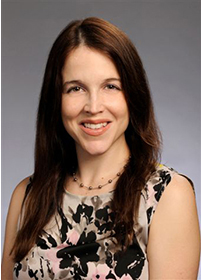Through the eyes of my patients
By Christine Bell
 "Buenas tardes! Soy la Dra. Bell. Cómo están?"
"Buenas tardes! Soy la Dra. Bell. Cómo están?"
A youngish mom in a McDonald's uniform smiles brightly. "Hola Doctora, muy buenas tardes! Estamos bien gracias. Y usted?"
It's 1:15 pm. and I'm beginning my afternoon continuity clinic, part of Grady Health System in Atlanta, which primarily serves children of Hispanic immigrants. Only a few cars are in the parking lot—most patients walk, or take a taxi or bus. Despite the challenges, there are rarely cancellations, and there are always walk-ins. The community cherishes their interactions with the clinic and its providers.
My first patient is a 10-year-old girl who is fainting during soccer practice. "Estoy bien, gracias. Porque están aquí hoy?" I ask.
"Se desmayó dos veces jugando futbol. Nunca ha pasado esto. Siempre es muy competitiva, siempre que meter goles y ganar," says the mother.
Her daughter is sitting up on the exam table, an athletic girl with two long side braids. "Como estas hoy?" I ask her. She smiles shyly. "Te sientes bien?" I ask encouragingly. "Te gusta mucho jugar futbol?"
She smiles and responds, "Si. Es que mi hija juega para Tophat soccer club! Ya la invitaron jugar con el Tophat Gold!" she says proudly. Tophat Gold is the highest level of an elite Georgia girls' soccer club, famous for winning national tournaments.
We continue the history and exam. She will need an evaluation with cardiology to rule out syncope of cardiac origin. I discuss the plan with her mom.
Next, I drive a few miles down the road to the children's hospital, where it's the first day of my hospitalist rotation. I see Emili, 15, who has been diagnosed with systemic lupus erythematosus. She recently arrived from El Salvador and is by herself in the hospital. Her mom works in a hotel until 8 p.m., and her dad is in construction. "Hola como estas?" I say. "Soy la Doctora Bell, una residente trabajando en tu equipo médico."
Emili smiles at me. "Hola!"
"Cómo te sientes hoy? Comiste algo de desayuno?" I ask. She looks shyly at her bedside tray. "Si," she says. "Comí mis pancakes, gracias."
She asks if I know when she can go home. "Si, a lo mejor mañana," I say, and she brightens.
The next day I walk into Emili's room to give her her discharge instructions. I look at her, thinking of her new SLE diagnosis, her new daily medication regimen of Plaquenil and steroids, her follow-up appointments with rheumatology, ophthalmology, renal. The new school that awaits her.
Later that afternoon, I meet her mom and her dad, who have left work to come for their daughter. Emili has changed into regular clothes and is beaming. I introduce myself in Spanish, and both of them open their eyes wide and begin to talk at the same time. "Hola, mucho gusto, Doctora!" I ask if they have any questions.
"Una pregunta, Doctora. Lo que tiene mi hija es un cáncer?" her mother asks. "No, ella no tiene cáncer," I reply, explaining SLE in basic terms and emphasizing the importance of follow-up appointments and the medications.
She says she will do whatever it takes to keep her daughter healthy. Emili's father hands me a stack of immigration papers, and I see that she was granted asylum two months ago. She arrived by herself at the border crossing in Texas, since her parents already were working here. "Necesita algo más para registrarse en la escuela?" her dad asks.
 |
|
| Christine Bell is a third-year pediatric resident at Emory. |
"Tiene todo lo que necesita para la escuela. Pero ya necesitan entrar su aplicación de Medicaid," I tell him.
He nods and smiles. "Muchas gracias, Doctora. Estamos muy agradecidos."
This is typical of my experience with my patients and their families. Upon making proper introductions and eye contact, a world of questions and gratitude comes pouring out. And just an extra minute of clarification in a patient's own language may enable them to better understand lifesaving information.






